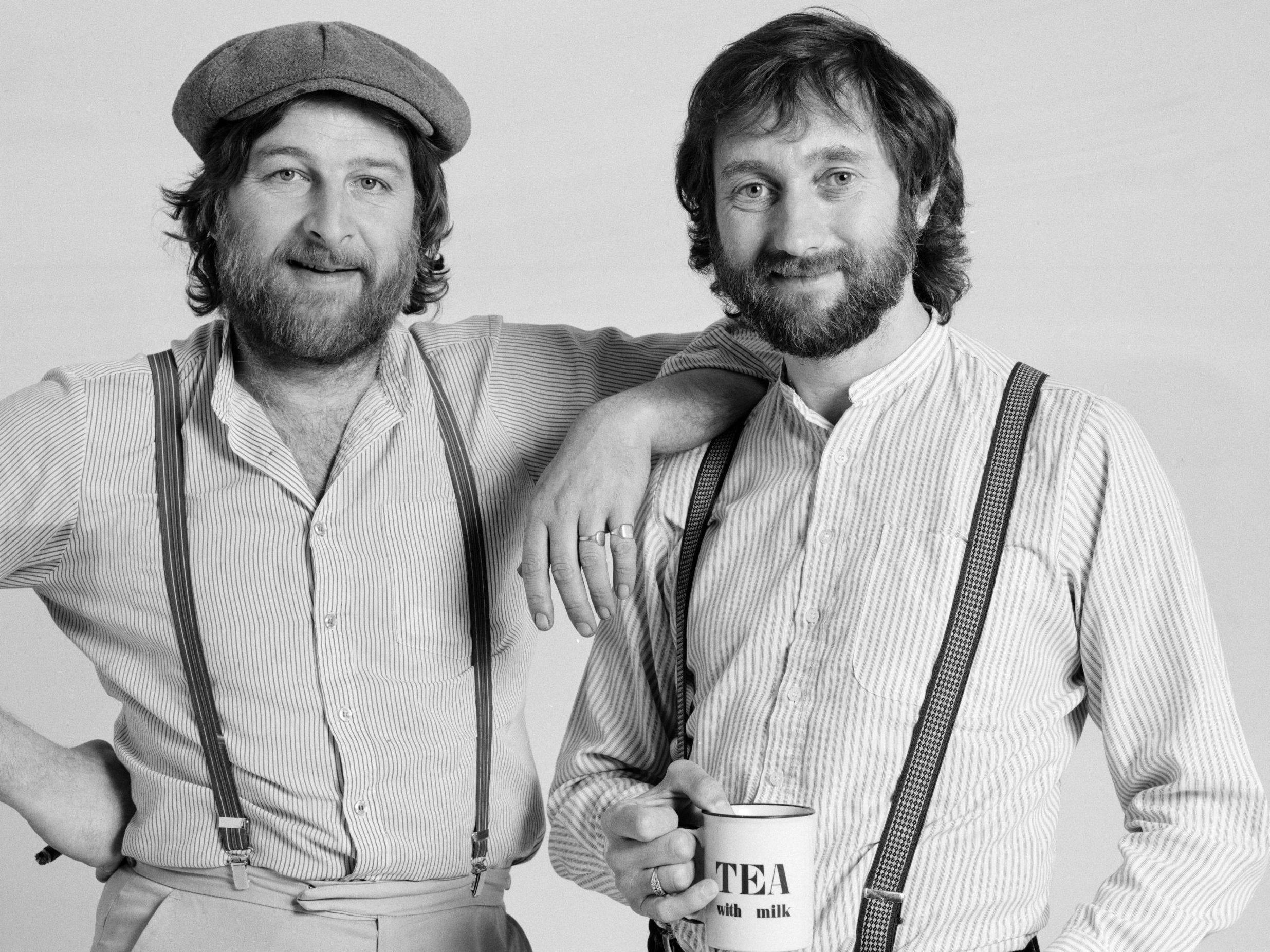Your support helps us to tell the story
From reproductive rights to climate change to Big Tech, The Independent is on the ground when the story is developing. Whether it's investigating the financials of Elon Musk's pro-Trump PAC or producing our latest documentary, 'The A Word', which shines a light on the American women fighting for reproductive rights, we know how important it is to parse out the facts from the messaging.
At such a critical moment in US history, we need reporters on the ground. Your donation allows us to keep sending journalists to speak to both sides of the story.
The Independent is trusted by Americans across the entire political spectrum. And unlike many other quality news outlets, we choose not to lock Americans out of our reporting and analysis with paywalls. We believe quality journalism should be available to everyone, paid for by those who can afford it.
Your support makes all the difference.Serendipity played a conspicuous part in the musical life of Chas Hodges, one half of the hugely successful and durable north London duo Chas & Dave, never more so than in the early 1960s when he stuck out his thumb in the hope of hitching a lift after walking his girlfriend home.
The car that stopped to pick him up was driven by Dave Peacock. Talk turned to music, Hodges explaining that he was playing bass guitar in the backing band for American rock’n’roller Jerry Lee Lewis. They later worked together in the British soul band Cliff Bennett and the Rebel Rousers, with Peacock on lead guitar, and in 1975 joined forces as Chas & Dave.
Hodges, who has died aged 74, was diagnosed with osophegeal cancer last year. He approached his predicament with typical bonhomie, arriving for his first chemotherapy session with a guitar in the hope of a singalong with nurses and patients. It was wishful thinking, though the illness did prompt him to write “Sling Your Hook (Chas’s Message to Cancer)” which featured on what proved the pair’s final album, A Little Bit of Us, released in April.
Born in Edmonton, north London, a few miles from Peacock in Ponders End, Hodges’ early life was scarred by the suicide of his father, a lorry driver, the day before his fourth birthday. His mother played piano in bars and he later realised he viewed music as an “escape from sadness”. At 13 he played in a skiffle group and was amazed when, after a show in a pub, he was handed a pound note. “At first I didn’t know what it was for,” he recalled. “Then I thought, ‘This is the life for me’.”
Hodges’ expertise on the bass propelled him into the professional ranks, where he soon found himself playing with his heroes, such as Lewis and Gene Vincent. He also became a member of The Outlaws, the house band employed to back artists recorded by the oddball “Telstar” producer Joe Meek at his Holloway Road studio in London and a Top 50 act in their own right.
He bought a Hofner bass when he was 16, played it on the Meek-produced “Johnny Remember Me” – a No 1 for John Leyton in 1961 – and was still pounding it nearly 60 years later. As an Outlaw he backed Mike Berry on three hit singles and played alongside future Deep Purple and Rainbow axeman Ritchie Blackmore. In the meantime, touring with and inspired by Lewis, Hodges worked hard at mastering the piano.
With the Rebel Rousers he was part of the support act to The Beatles on their final tour in 1966. Hodges remained friends with Paul McCartney for the next half-century and remembered with a mischievous smile the day the Fab Four’s own bass supremo played him a demo of “Yellow Submarine”; he wondered whether it was a “wind-up”. After Bennett’s band split he joined the rock band Heads Hands & Feet, fronted by guitar virtuoso Albert Lee.
Chas & Dave originally included drummer Mick Burt (who was succeeded by Hodges’ son Nik in 2009). Starting with “Better Get Your Shoes On” on the debut album One Fing ’n’ Annuver – the first Hodges and Peacock wrote together – they penned and performed songs which came to be characterised as “rockney”. The name of the genre mixed rock and cockney; the style combined music hall and pub humour, rhyming slang, boogie-woogie piano and songs delivered in the accents they grew up using in London. Hodges felt a “fraud” singing in an American accent; the diamond geezer persona came naturally.

The hits – eight top 40 singles in all – began arriving in 1979 with “Gertcha”. An advertising company executive’s ears pricked up as Chas & Dave belted it out in an East End pub; serendipity again. The song ended up plugging Courage beer – and of course itself, providing their breakthrough at a time when punk/new wave and disco were supposedly pre-eminent.
They followed up with “Rabbit”, Ossie’s Dream” (the official FA Cup final song of Tottenham Hotspur, whom Hodges and Peacock supported), “Stars Over 45”, “Ain’t No Pleasing You” (Hodges’ homage to Fats Domino which reached No 2 in 1982), “Tottenham, Tottenham” and “Snooker Loopy”.

Nine of their albums made the Top 40 while in 1983 the duo also starred in an ITV series, Chas & Dave’s Knees Up, a variety show set in an East London hostelry. Their song “Margate” was used in an episode of Only Fools and Horses – Hodges once reflected on the possibility of their writing a “Del Boy” musical – and they composed and sang the theme for In Sickness and In Health, Johnny Speight’s follow-up to Till Death Us Do Part. Hodges also wrote several books, including Chas and His Rock ’n’ Roll Allotment (2010), about his love of gardening near his Hertfordshire home, Chas & Dave: All About Us (2013) and this year’s love letter to Spurs, Memories of the Lane.
The death of Peacock’s wife Sue in 2009 led him to announce his retirement and the end of the partnership. The Farewell Tour in 2011 was to have been their swansong, but Peacock changed his mind and in 2013 they undertook the Back By Demand Tour.
The following year they topped the bill at a packed Royal Albert Hall – adding to their slot supporting Led Zeppelin at Knebworth in 1979 and at Glastonbury in 2005 – and recent years had seen them release two new studio albums after an 18-year hiatus.
This year they delivered an outstanding performance on Later... With Jools Holland. Their music had shed many of the “novelty-song” elements and was now a kind of North Circular Road equivalent of Americana. Hodges also contributed piano and harmonies to an acclaimed new album by Gilbert O’Sullivan.
He is survived by his wife of 52 years, Joan – the aspiring actress he walked home moments before meeting Peacock – and their three children.
Charles Nicholas Hodges, singer, songwriter, musician and author, born 28 December 1943, died 22 September 2018

Join our commenting forum
Join thought-provoking conversations, follow other Independent readers and see their replies
Comments